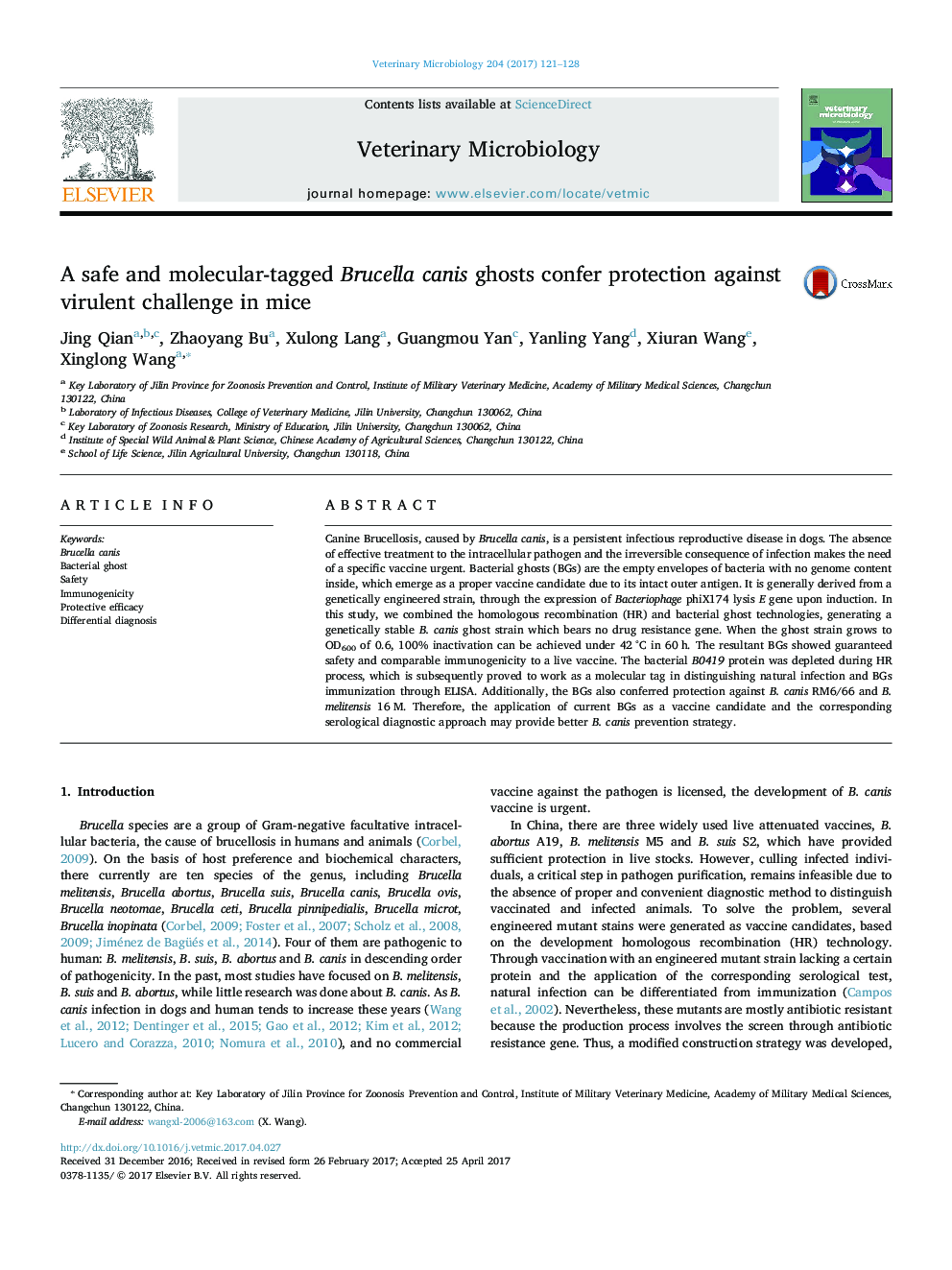| Article ID | Journal | Published Year | Pages | File Type |
|---|---|---|---|---|
| 5545260 | Veterinary Microbiology | 2017 | 8 Pages |
Abstract
Canine brucellosis, caused by Brucella canis, is a persistent infectious reproductive disease in dogs. The absence of effective treatment to the intracellular pathogen and the irreversible consequence of infection makes the need of a specific vaccine urgent. Bacterial ghosts (BGs) are the empty envelopes of bacteria with no genome content inside, which emerge as a proper vaccine candidate due to its intact outer antigen. It is generally derived from a genetically engineered strain, through the expression of Bacteriophage phiX174 lysis E gene upon induction. In this study, we combined the homologous recombination (HR) and bacterial ghost technologies, generating a genetically stable B. canis ghost strain which bears no drug resistance gene. When the ghost strain grows to OD600 of 0.6, 100% inactivation can be achieved under 42 °C in 60 h. The resultant BGs showed guaranteed safety and comparable immunogenicity to a live vaccine. The bacterial B0419 protein was depleted during HR process, which is subsequently proved to work as a molecular tag in distinguishing natural infection and BGs immunization through ELISA. Additionally, the BGs also conferred protection against B. canis RM6/66 and B. melitensis 16 M. Therefore, the application of current BGs as a vaccine candidate and the corresponding serological diagnostic approach may provide better B. canis prevention strategy.
Related Topics
Life Sciences
Agricultural and Biological Sciences
Animal Science and Zoology
Authors
Jing Qian, Zhaoyang Bu, Xulong Lang, Guangmou Yan, Yanling Yang, Xiuran Wang, Xinglong Wang,
